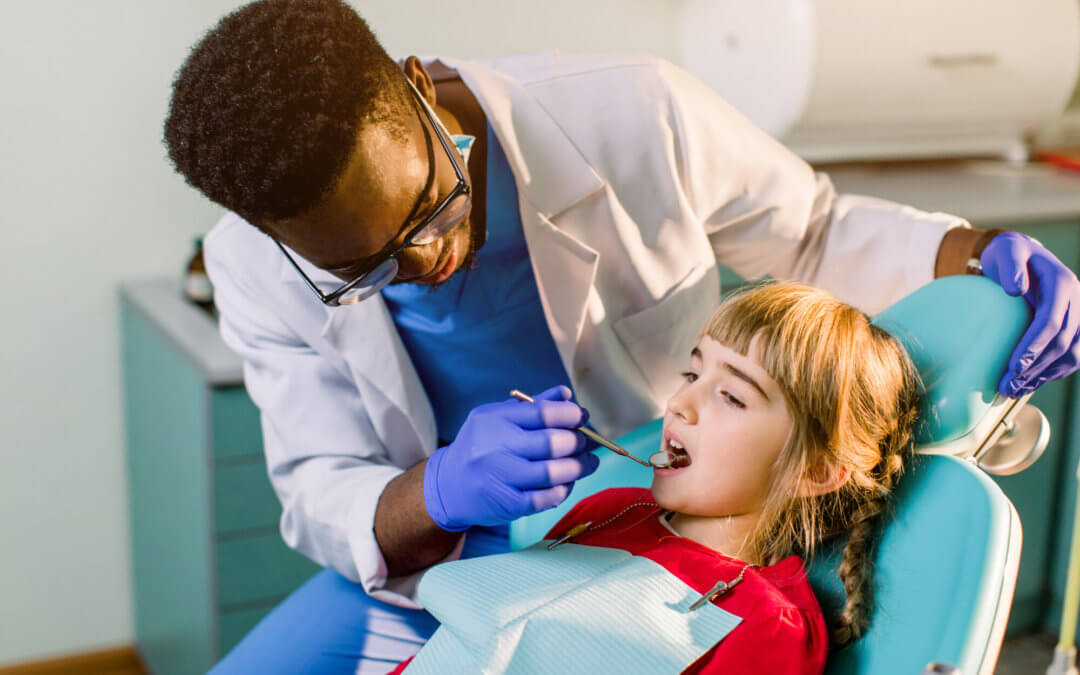Did you know about 91% of people experience cavities?
Cavities are a problem to avoid, but there are even more problematic issues for your child’s teeth. Orthodontic issues are no fun to deal with as an adult, but they can be especially damaging for children.
If you have a child, learning what habits can lead them to unhealthy teeth is crucial. For example, considering “where’s the best orthodontist near me?” and “what can I do to make sure my children’s teeth are in tip-top shape?” can help you avoid issues.
Keep reading to learn more!
1. Chewing on Hard Non-food Objects
It’s not uncommon for children to chew on things they shouldn’t. Some everyday objects you might see your child putting in their mouth are ice, pens, and pencils.
You might also see your child using their teeth to open up chip packages, drink bottles, etc.
Chewing on hard objects can lead to broken teeth. Once an adult tooth is chipped or lost, it won’t grow back, so your child will be without that natural tooth for life.
Even if nothing as dramatic as chipping or losing a tooth happens, chewing can still wear away their enamel or introduce harmful bacteria. Both of these issues lead to tooth pain.
If you notice your child chewing on any non-food object, try to steer them away from doing so as soon as possible, so it doesn’t become a habit.
2. Sucking on Their Thumb
Thumb sucking often begins when your child is just a baby. At this point, there isn’t much you can do. It’s a soothing mechanism, and babies won’t understand or follow directions to keep their thumbs out of their mouths.
So if your baby sucks their thumb, be prepared to get them out of this habit as soon as they can understand you. It can be a tricky habit to break, but thumb sucking can lead to significant issues down the line like teeth alignment problems.
Overbites and other alignment problems can lead to difficulty chewing or speaking and will result in completely avoidable orthodontic work.
3. Eating Hard or Sticky Candies
It’s no secret that sugar can lead to a cavity in children’s teeth. Hard and sticky candies, in particular, cause issues.
Sucking on hard candy results in the sugar being in your child’s mouth for a more extended period of time. And eating sticky candy always leaves behind pieces, especially in between the teeth, that are hard to remove from brushing or flossing.
Over time the sugar can lead to children’s rotten teeth. You’ll notice your child experiencing sensitivity, tooth pain, and the need for fillings in this case.
4. Brushing Teeth Too Hard
Teaching your child how to brush their teeth properly is crucial if you want them to have a healthy mouth.
They might be eager when they first learn and brush their teeth with too much vigor. While it might seem like a good thing for them to brush hard, brushing too hard can lead to more damage than good.
Hard brushing can damage their gums and teeth. So teaching them how to brush with the correct amount of pressure and proper circular motion is key. You might find it easier to offer them an electric toothbrush when they’re little, so it’s less work for them to brush.
5. Skipping Regular Brushing
Teaching your child how to brush is essential, but what they learn won’t do them any good if they aren’t brushing regularly.
It’s best if they brush twice a day or after each meal. If you offer them a sweet treat on occasion, having them brush their teeth afterward can help prevent the sugar from sitting on their teeth.
Above all, be sure to monitor your child’s brushing habits to ensure they’re brushing their teeth regularly.
6. Grinding Teeth
Children’s teeth grinding is a common issue for both young children and teenagers.
Teeth grinding can wear down the enamel in the beginning. As the grinding persists, your child might experience issues like jaw pain, earaches, and headaches. At times, even after they stop the grinding, these issues can continue.
It’s best to put grinding to a stop as soon as possible. Consulting with a professional can help you understand strategies to do so and give you a better picture of any damage that’s already been done.
7. Missing Regular Dentist Visits
Visiting the dentist regularly is the best way to ensure your child’s current oral care routine is keeping their teeth healthy.
While you might monitor their brushing and other potential habits mentioned here, it’s difficult to tell when things are going wrong before they’re a more significant issue.
That’s why visiting the dentist every six months for a cleaning and regular x-rays is wise. In addition to these services, they also monitor your child’s teeth and how they’re coming in.
So if it appears they’ll need orthodontic treatment, they can notify you sooner rather than later. The sooner issues like these are caught, the easier it is to fix a problem.
Orthodontist Near Me: Take Care of Children’s Teeth
If you find yourself Googling “where to find an orthodontist near me?” because you’re worried about your child’s teeth, following the advice found in this article is important.
Part of ensuring your children’s teeth come in properly involves making sure their habits aren’t setting them up for failure. If your child consistently does any of these things or has other signs of having major teeth problems, visiting a local orthodontist can give you some peace of mind and help you get on a clear path to fix any problems.
Please don’t hesitate to contact us today if you’d like to have your child’s teeth checked!

